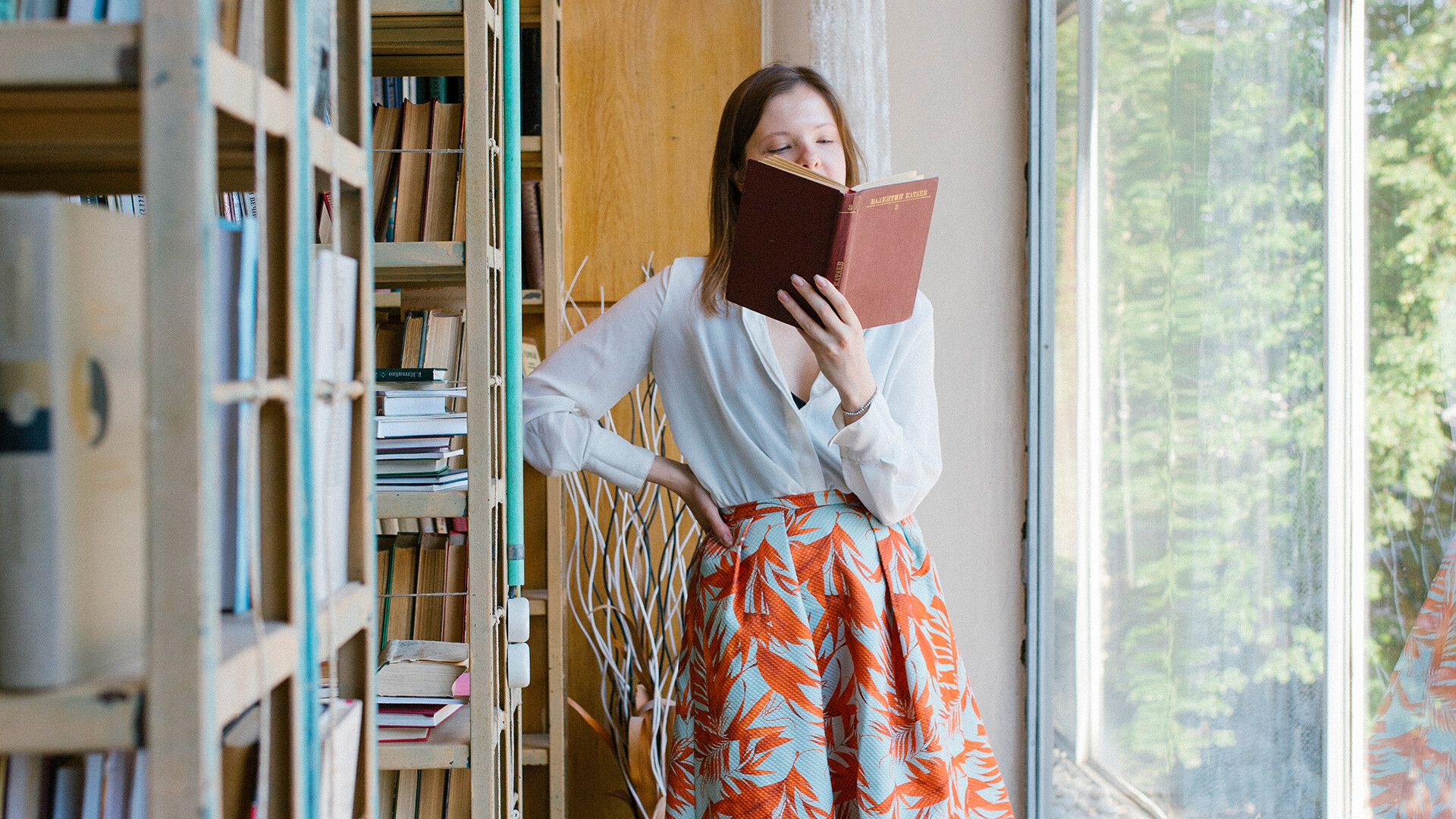
In 1932, Maxim Gorky, the USSR’s main writer, came up with the idea of creating a kind of literary residence, similar to those he had seen in Europe earlier. He wondered about selecting 20 talented writers, providing them with all the material conditions and opportunities to sit and write books "that would meet the solidity of the questions of the time".
Stalin approved the idea and suggested going further: "Building a hotel for writers near Moscow is not enough. A writer wouldn't like to be away from his family for a long time… It should be not a hotel, but a city for writers to be built somewhere near Moscow, where they could live together with their families, not interfering with each other and intensively creating."
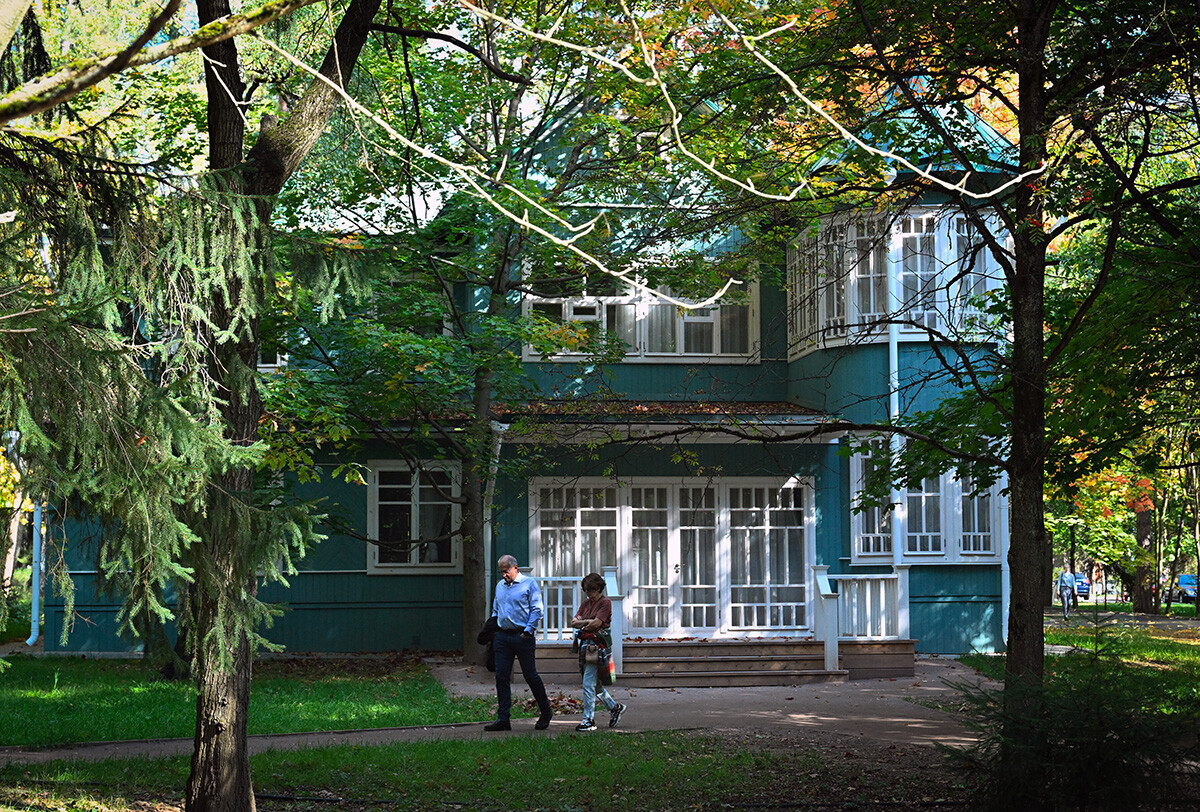
A wooden house in writers' village
Stanislav Krasilnikov/SputnikThus, in the 1930s, a ‘Writers’ Town’ appeared in the village of Peredelkino near Moscow (now it's inside the capital's city borders). Country houses (‘dachas’) were assigned to writers lifelong and, six months after their death, the town council could decide on a new owner.
The first residents of Peredelkino were Boris Pasternak, Boris Pilniak, Ilya Ehrenburg, Isaac Babel, Korney Chukovsky and many others. At different times, Valentin Kataev, Alexander Fadeyev, Konstantin Simonov, Yevgeny Yevtushenko and Bulat Okudzhava also lived here. In general, all the loudest names of the Soviet literary Olympus.
Today, the writers' wooden dachas are neighbored by luxurious villas of rich Muscovites, surrounded by impregnable fences. The tourists and hipsters walk along them to pilgrimage to Pasternak and other idols.
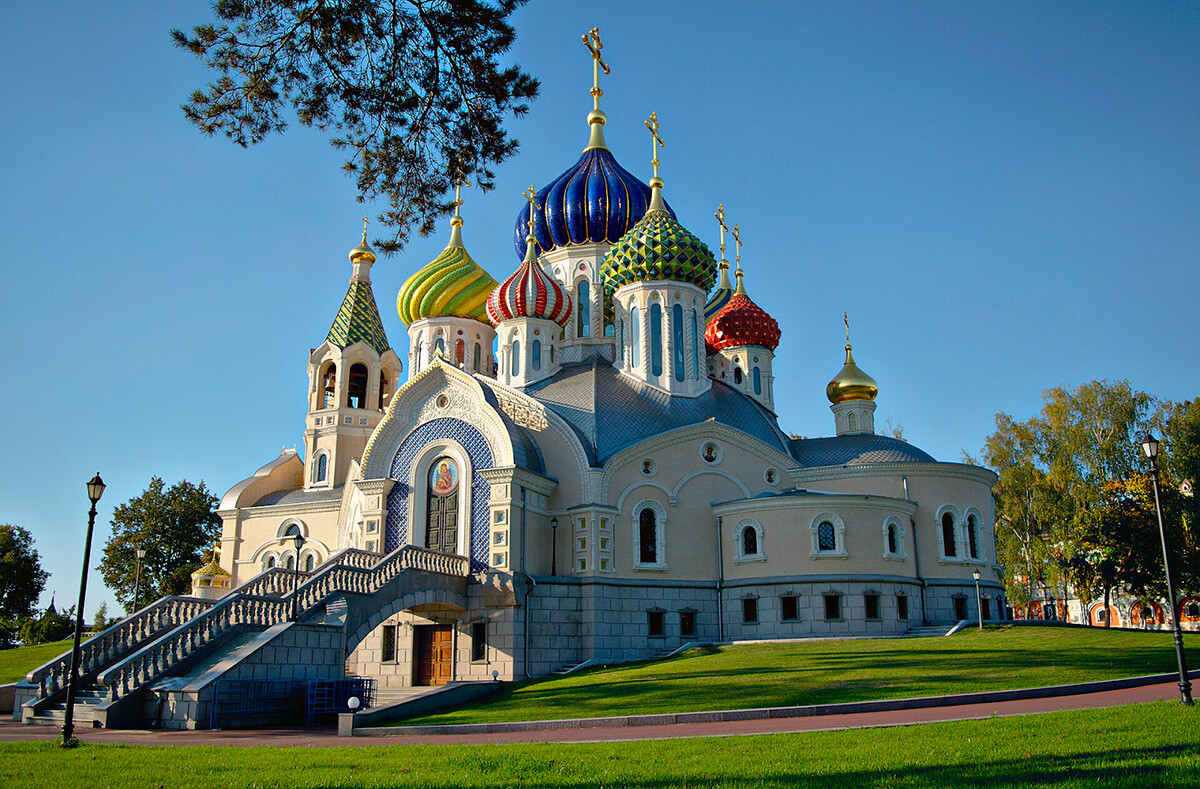
Church of Blessed Prince Igor of Chernigov
Andrey Pugachev (CC BY-SA)Everyone who visits Peredelkino is sure to have their first glance at the huge, colorful Temple of Blessed Prince Igor of Chernigov.
The colorful domes of this 2012 construction resemble the St. Basil's Cathedral on Moscow's Red Square. This new cathedral was built in a modern interpretation of the "Russian style".
The interior decoration looks a bit unusual for an Orthodox temple. It actually has one main dome, which is huge and gives a lot of light, and from it, the exterior “onions” of the domes rush upwards.
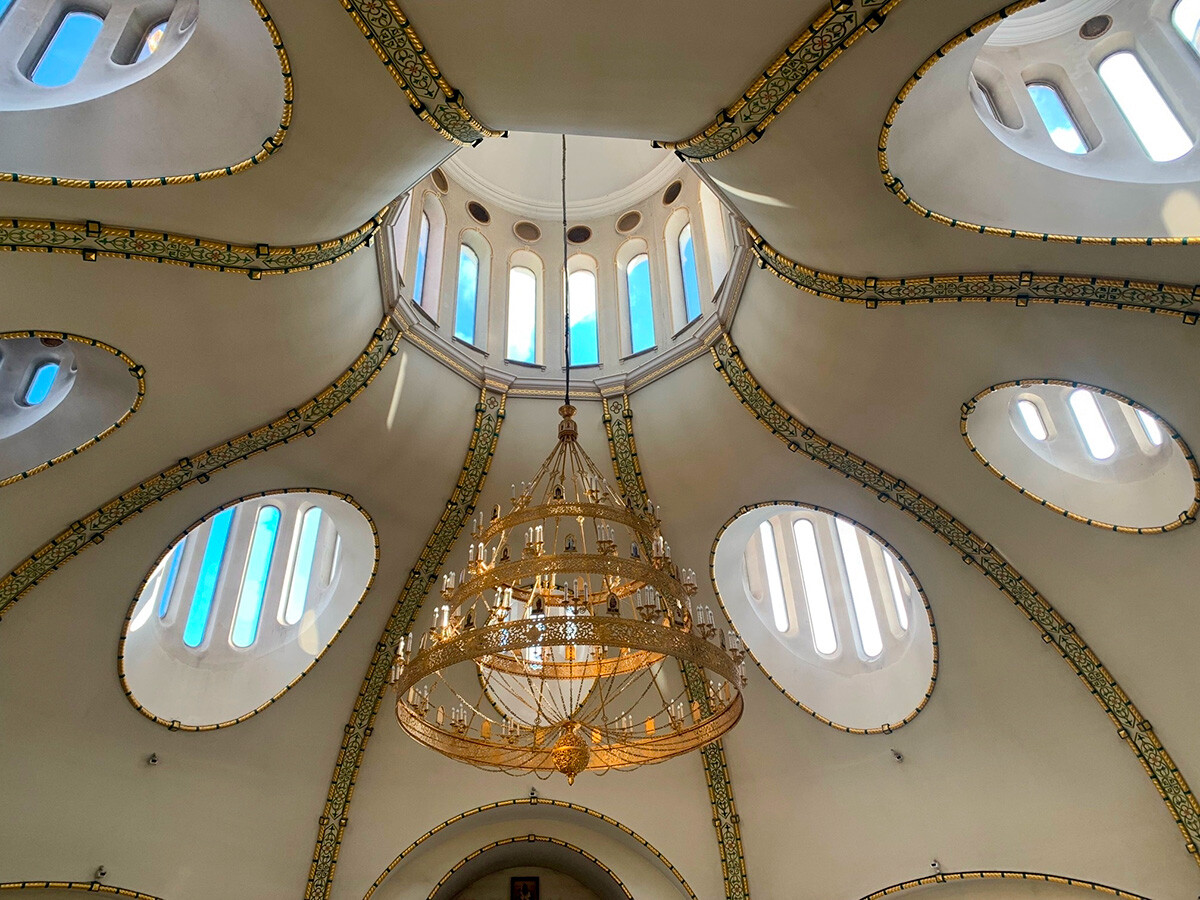
Inside the church
Alexandra GuzevaThe summer residence of the Patriarch of Moscow and All Russia, meanwhile, is hidden behind the temple. It appeared here back in the 1950s and then, in the 2000s, it was enriched with a new building.
From there, head on foot to the writer's village through the Peredelkino cemetery. Famous local residents rest in peace there: Boris Pasternak, Korney Chukovsky, poet Arseny Tarkovsky (father of the famous director Andrei Tarkovsky), Robert Rozhdestvensky, Yevgeny Yevtushenko and many other famous writers.
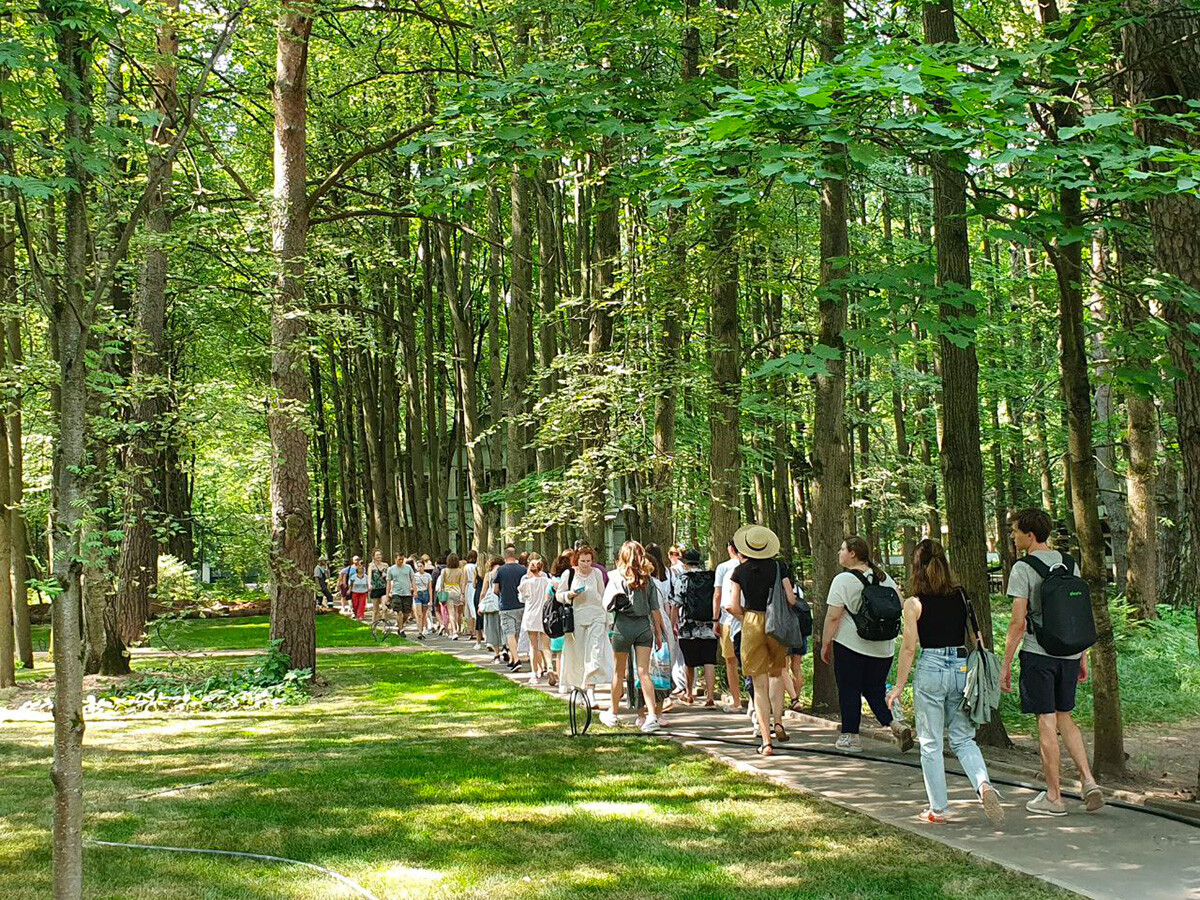
Walking in the forest
PeredelkinoAfter 10 minutes of walking along the road, you will come to the gates of the village. You will be greeted by a quiet forest near Moscow with asphalted paths like in a real Soviet sanatorium.
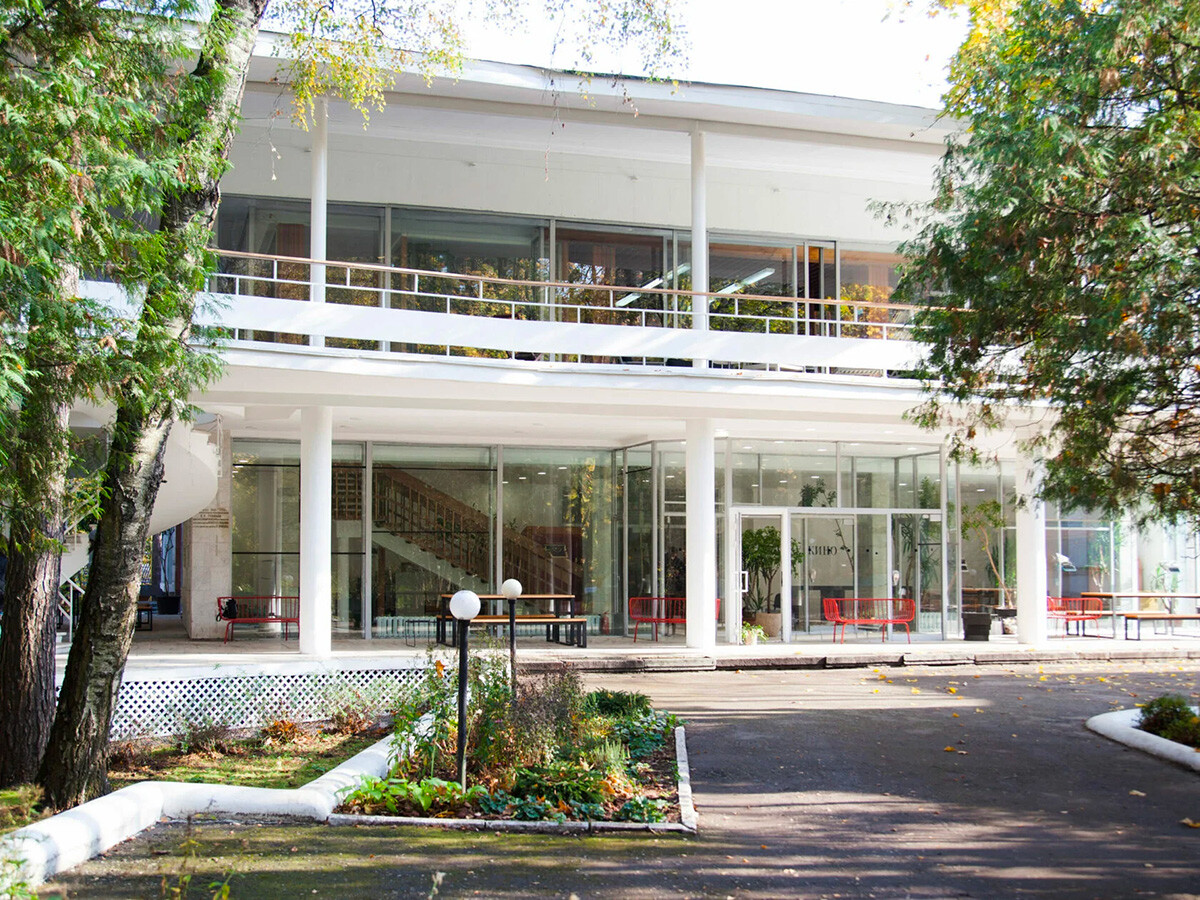
‘House of Writers' Creativity’ (literally ‘Dom Tvorchestva’)
PeredelkinoThe first building welcoming you is a modernist Soviet glass building. This is the ‘House of Writers' Creativity’ (literally ‘Dom Tvorchestva’), the main attraction in Peredelkino. Literary meetings and exhibitions take place there now, there is a pleasant vintage library and, of course, a café.
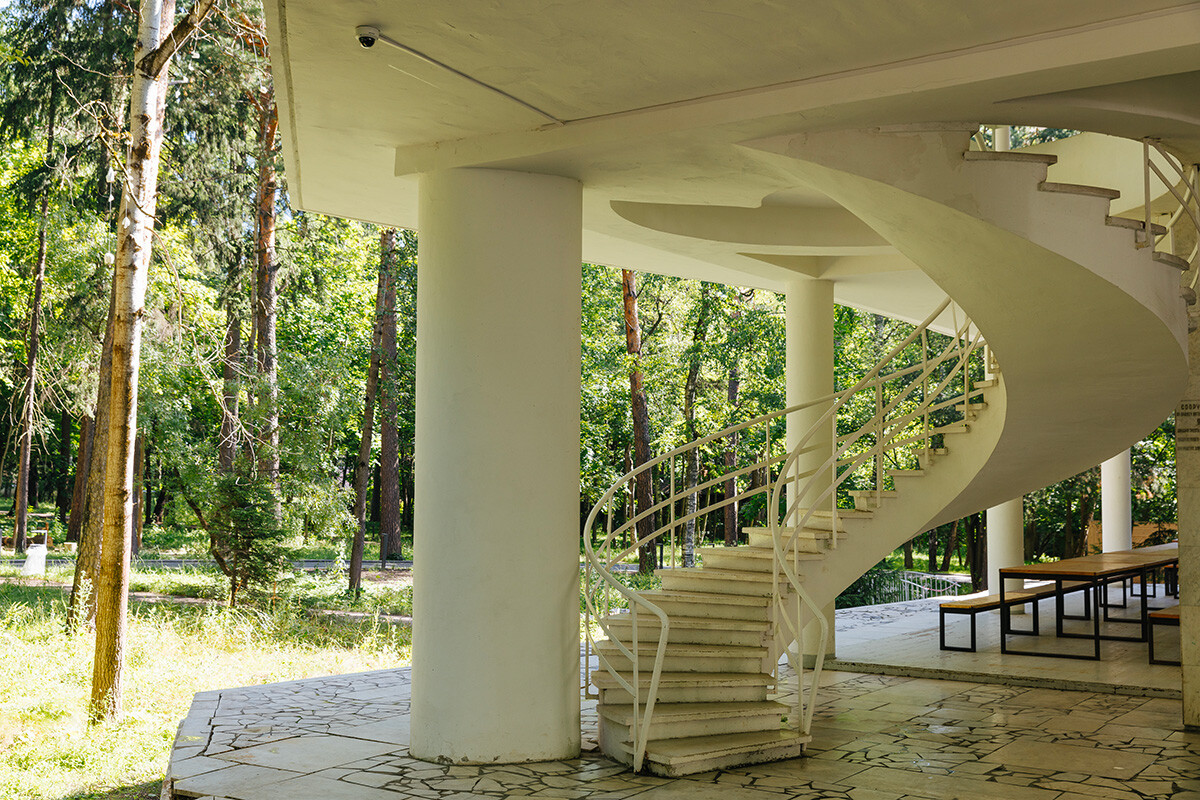
Modernist stairs
PeredelkinoThe building was constructed in 1966 and worked as a club, movie theater and library. But, since the 1990s, it has been abandoned and in a terrible condition. In 2020, however, it was restored with great attention to detail, trying to rekindle the spirit of the 1960s.
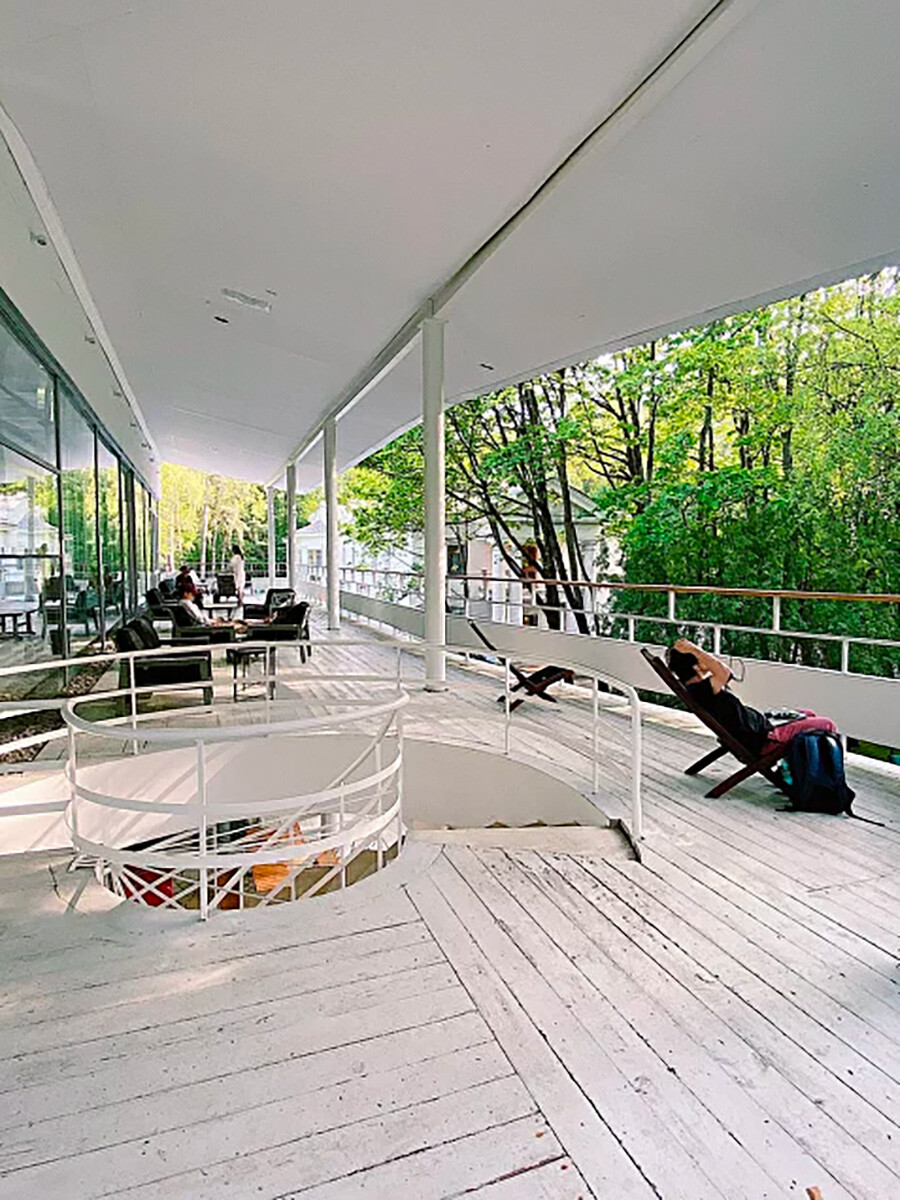
Upstairs terrace
PeredelkinoEverything from the stairs, cabinets, upholstered armchairs to the smell of old books allows you to take a little trip back in time and get into the Soviet writers' atmosphere. You can read a book or sit on the veranda enjoying the forest air.
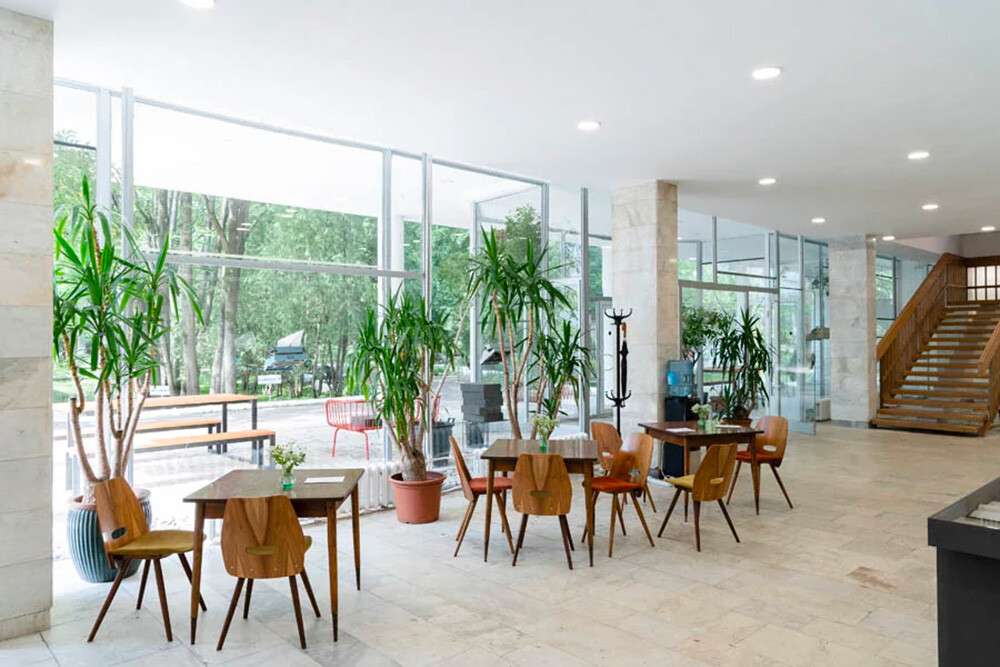
Soviet-style interior
PeredelkinoThe glass building of the ‘House of Creativity’ is adjoined by a Stalinist Empire style building. The historic building with columns was built earlier, in 1955, and there were 40 rooms, essentially workrooms for writers. Those who didn't get a private dacha could apply and get a voucher for a temporary residence in this building. However, the task was not easy, because each candidate had to be approved by the state literary commission.
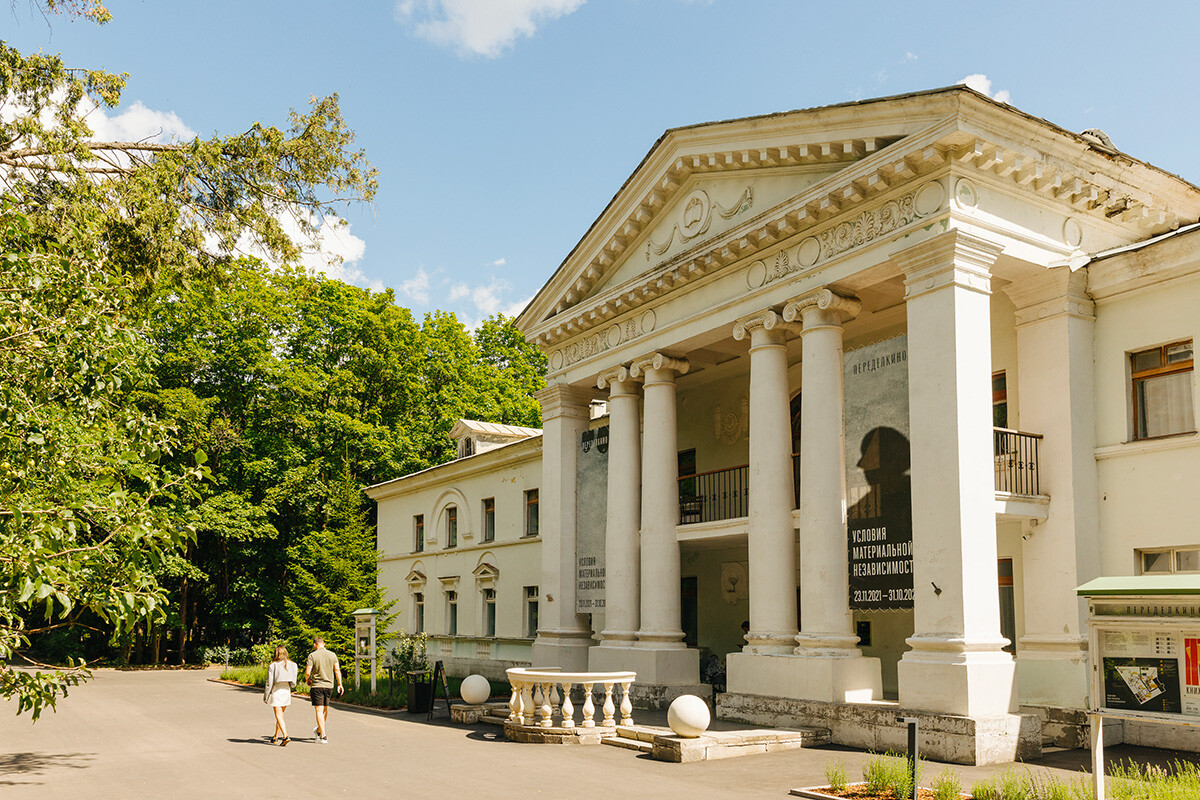
The historic building
Valera Belobeev/PeredelkinoThen, step down into the bar-buffet on the ground floor of the historic building and dine in Soviet style, imagining how the great writers once ate and drank there.
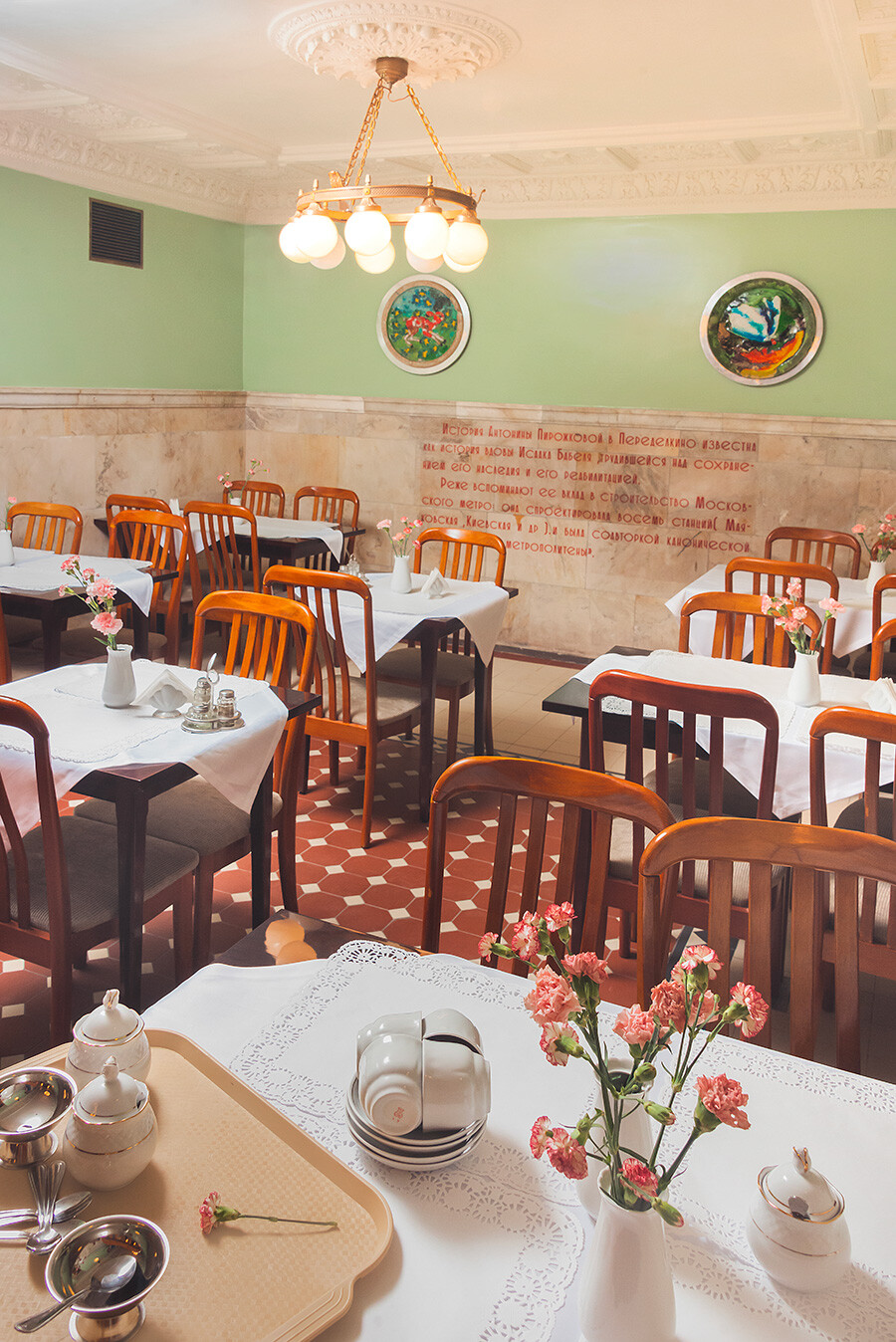
Soviet style canteen
PeredelkinoBut, if you want a meal with a view and more comfort, take a seat in the ‘Biblioteka’ restaurant right nearby. There are always a lot of people in all the local dining places on weekends, so, if you are not too hungry, order some tea and delicious pies to go at the buffet bar and continue your walk.
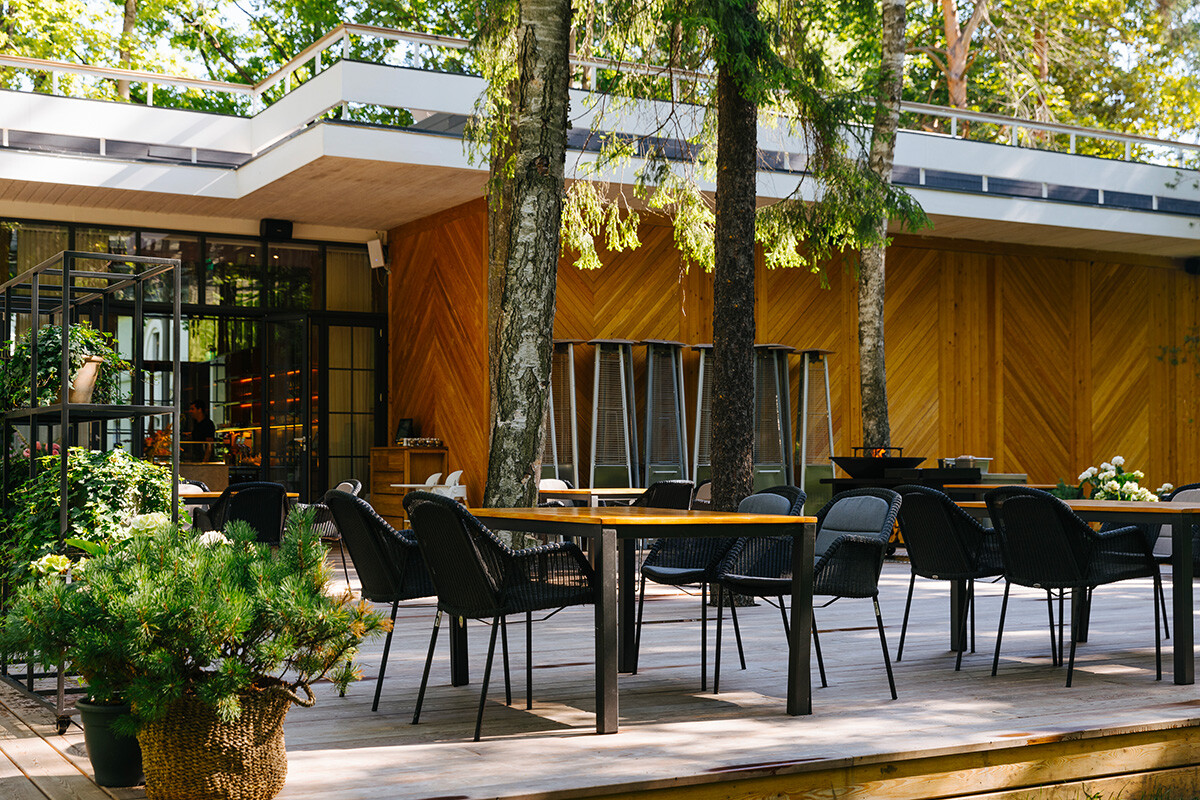
‘Biblioteka’ restaurant
Valera Belobeev/PeredelkinoAnother building in the style of a Soviet sanatorium is the hotel. By the way, anyone can spend the night there, you just need to book a room in advance. Then, you can sit on the balcony, imagining how the Soviet poems and novels used to be composed there.
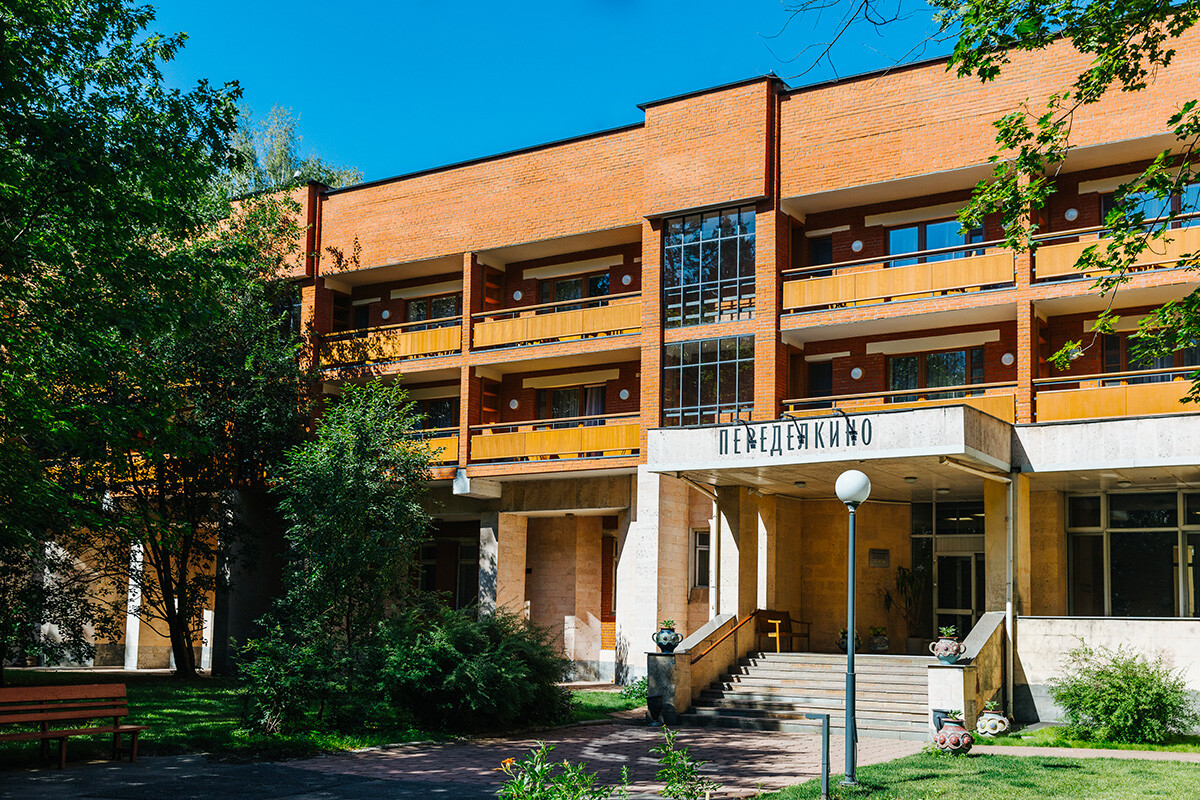
Peredelkino hotel
Valera Belobeev/PeredelkinoIn 2020, the residency program in Peredelkino was renewed. Writers, playwrights, translators, and researchers can apply and settle in the hotel of the ‘House of Creativity’, where the whole atmosphere favors… creativity.
Leaving the fenced territory, walk along the country road to the writers' dachas. One of the first on the way is the house of the children’s author Kornei Chukovsky. "At our dacha, I have already spent twenty-four hours – and I like it very much. The silence is absolute. The forest. You can not see a single person for weeks," he wrote enthusiastically, once he moved there.
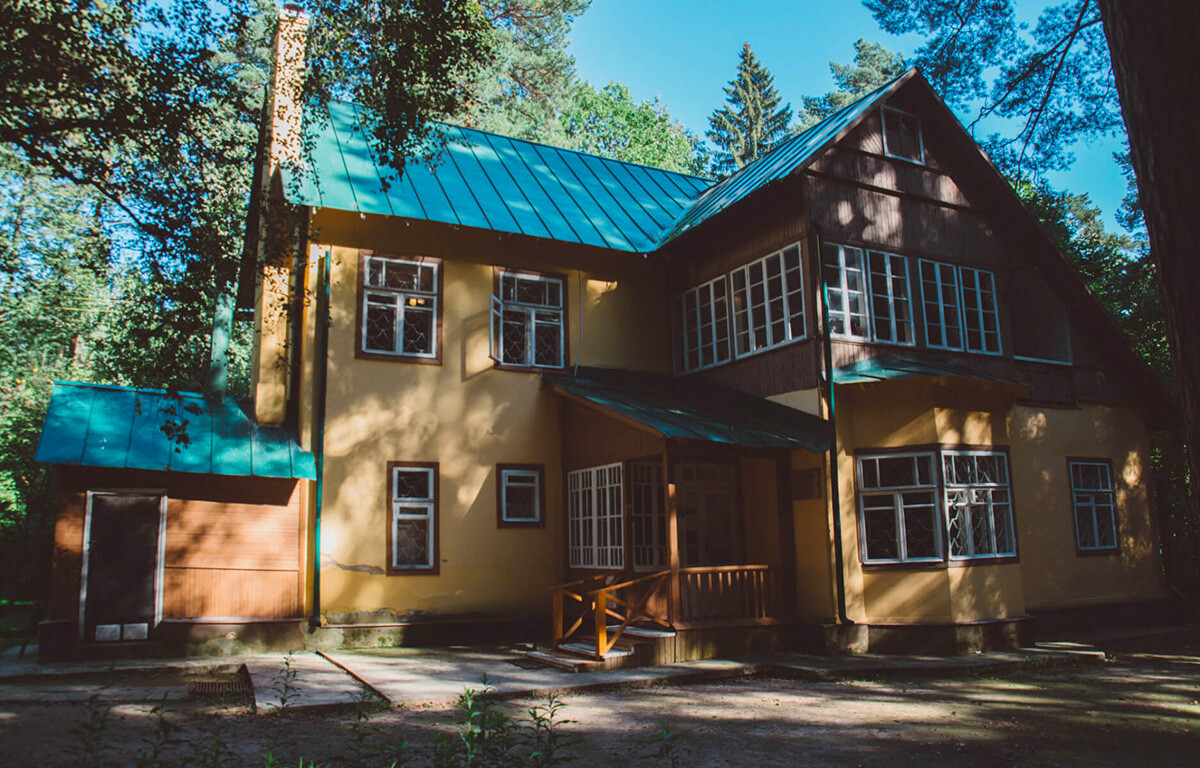
House of Kornei Chukovsky in Peredelkino
State Literary MuseumWhen Chukovsky lived there, children came to visit him very often. He read to them and tutored them. And then, he allocated part of his dacha territory for a children's library and invested his own money in its construction. Chukovsky lived in Peredelkino from 1938 to 1969, until his death. Today, his house is a museum (which means, you need to buy a ticket to enter or better to book a tour, as then you will also be shown the mantle of Oxford University, whose honorary doctor was the writer).
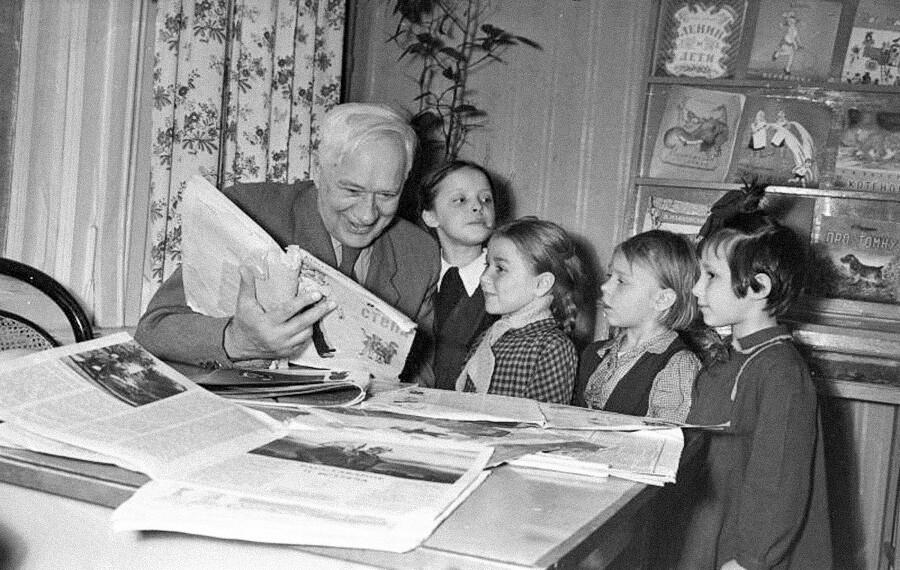
Kornei Chukovsky with kids in Peredelkino
Vsevolod Tarasevich/MAMM/MDFAfter saying goodbye to Chukovsky and adding a couple of his works to your summer reading list (and don't miss his daughter Lydia's novels and memoirs), head off to visit another famous dacha dweller.
Boris Pasternak lived at his dacha in Peredelkino from 1939 to 1960. A famous Soviet writer, he was, at the same time, very fond of gardening.
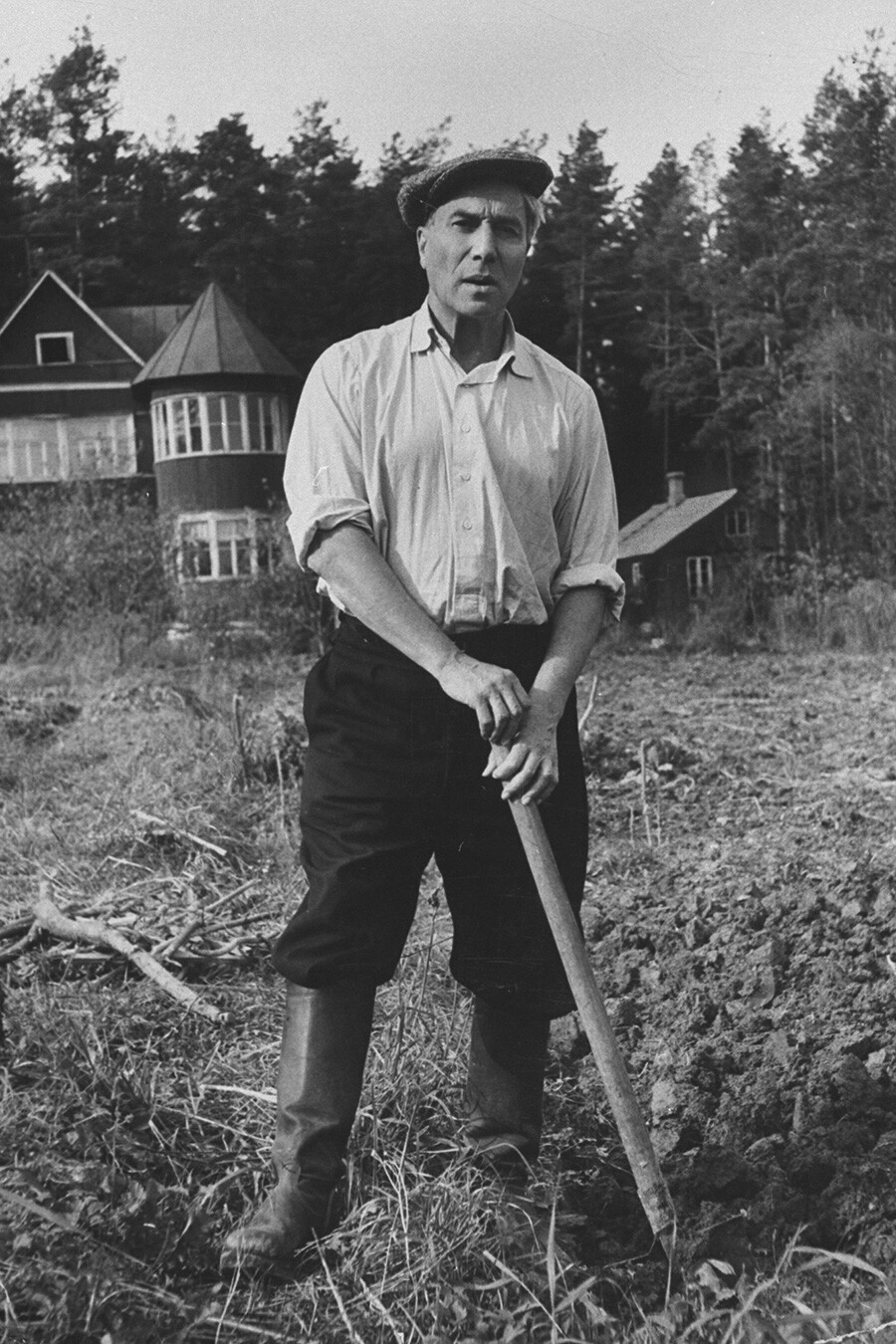
Boris Pasternak in a garden in front of his Peredelkino house
Jerry Cooke/Getty ImagesPasternak lived there, even when he was in disgrace, when he was almost out of print and persecuted for his novel 'Doctor Zhivago', which was published in the West (with the help of the CIA). After being awarded the Nobel Prize in literature, the writer was even in a bigger disfavor with Soviet authorities. By the way, this is where the writer was when he learned that he had been awarded the prize. All these events undermined his health. He died in Peredelkino and was buried in the local cemetery. His dacha also became a house-museum (so don't forget to buy a ticket, too!).
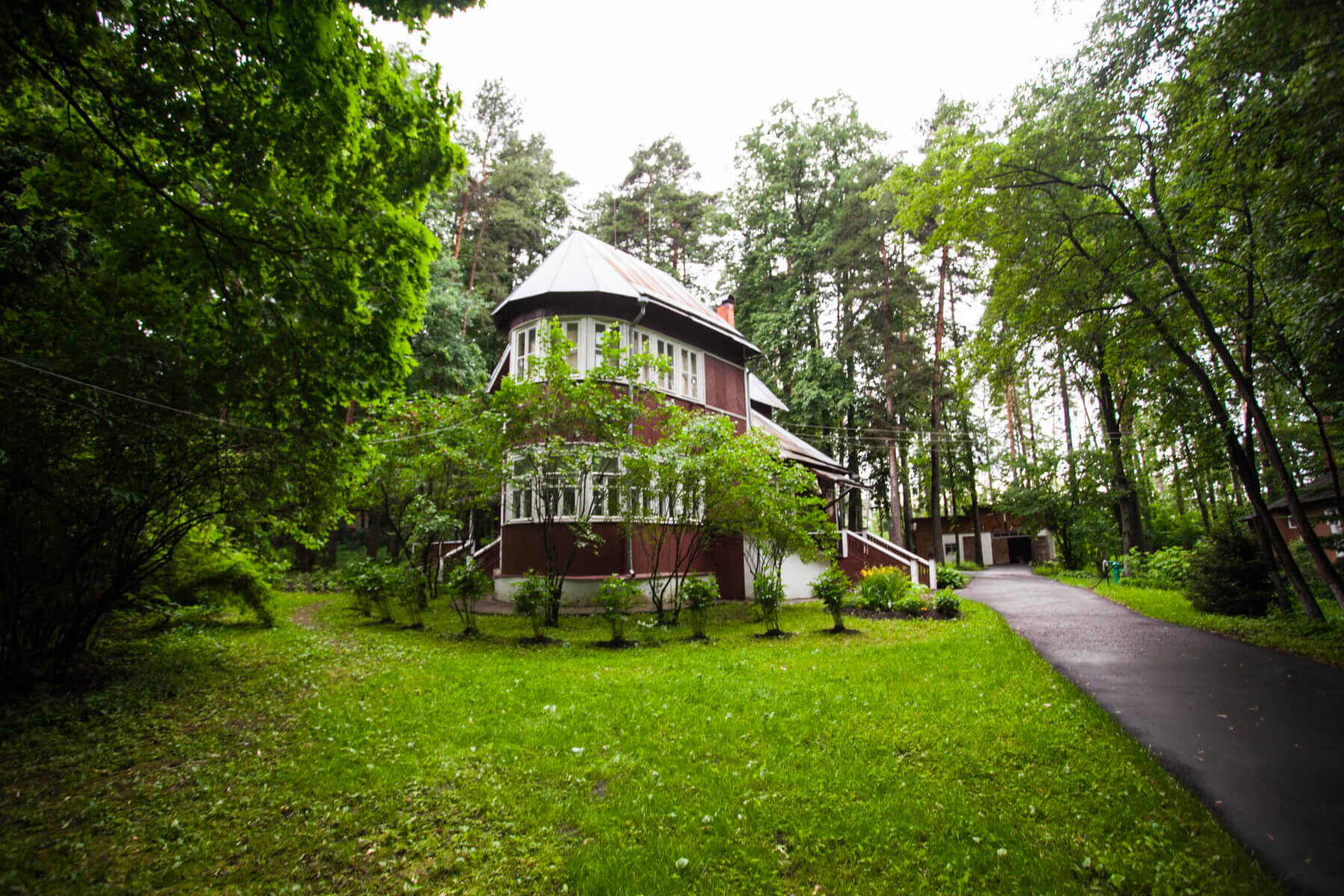
Pasternak house in Peredelkino
State Literary MuseumLeaving Pasternak, walk leisurely back to the station or a parking lot. But, on the way back, don't forget to take a look at the small wooden house on the corner. This is the place where Andrei Tarkovsky filmed his cult movie ‘Mirror’ (1974).
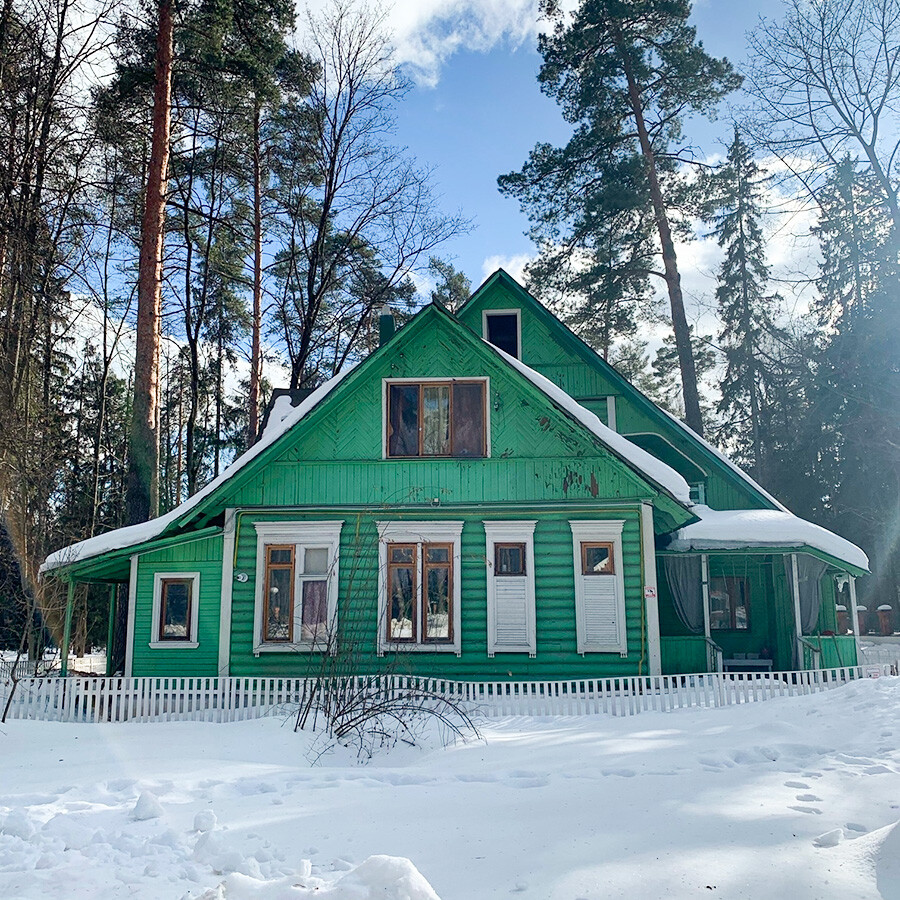
A place where Andrei Tarkovsky filmed the ‘Mirror’
Alexandra GuzevaDear readers,
Our website and social media accounts are under threat of being restricted or banned, due to the current circumstances. So, to keep up with our latest content, simply do the following:
If using any of Russia Beyond's content, partly or in full, always provide an active hyperlink to the original material.
Subscribe
to our newsletter!
Get the week's best stories straight to your inbox